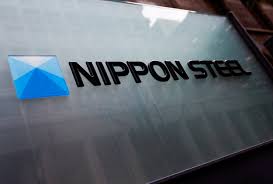Trump administration unveils ‘golden share’ terms in US Steel-Nippon deal

In a dramatic policy shift with far-reaching economic implications, the Trump administration has conditionally approved the $14.9 billion acquisition of U.S. Steel by Japan’s Nippon Steel Corporation. The greenlight comes with a crucial caveat: a “golden share” provision that grants the U.S. government perpetual veto power over critical decisions affecting the company’s identity, operations, and domestic investments.
The announcement, made during a press briefing at the White House on Sunday, signals a turning point in America’s evolving industrial and trade policy under former President Donald Trump, now campaigning for a return to the Oval Office.
What Is the “Golden Share”?
The golden share—held by the U.S. Department of Commerce—effectively grants the federal government an enduring right to veto decisions that could compromise American industrial sovereignty. According to Commerce Secretary Howard Lutnick, the terms of the deal were carefully structured to ensure that U.S. Steel remains “an American company, headquartered in Pittsburgh, serving American workers.”
The golden share gives the government a say in:
- Preventing the relocation of U.S. Steel’s headquarters outside Pittsburgh
- Prohibiting any name change or brand dilution
- Blocking offshoring of American jobs
- Ensuring all planned investments, including new furnaces and plants, are fulfilled
- Preventing foreign reincorporation or asset stripping
These powers will persist beyond the deal’s closing and apply to all future corporate decisions deemed sensitive to national interest.
Investment Commitments Escalate to $14 Billion
Initially, Nippon Steel had committed to invest approximately $11 billion into U.S. Steel’s domestic operations by 2028. However, following concerns raised by lawmakers, unions, and the Committee on Foreign Investment in the United States (CFIUS), the Japanese steel giant increased its commitment to around $14 billion.
Among the flagship projects is a state-of-the-art electric arc furnace facility in the Midwest aimed at boosting production of eco-friendly steel. Other investments are earmarked for facility upgrades, R&D centers, and workforce development initiatives.
A Deal Months in the Making
Nippon Steel first announced its intent to acquire U.S. Steel in late 2024. The deal drew immediate scrutiny from labor unions and lawmakers who expressed concerns about foreign ownership of an iconic American industrial brand. The Biden administration had placed the transaction under review, citing national security concerns. Ultimately, it was the Trump camp that carved a path for conditional approval—hinging on the golden share provision and other legally binding safeguards.
“This deal would not have gone through without these protections,” Trump declared at a rally in Pennsylvania. “We’re making sure American steel stays American.”
Mixed Reactions from Labor and Industry
The United Steelworkers union (USW), which represents thousands of employees at U.S. Steel, remains skeptical despite the golden share clause. In a statement, USW leaders said they were “disappointed by the lack of transparency in deal negotiations” and emphasized that foreign ownership—even with conditions—could pose risks to long-term worker interests.
“Ownership matters. Control matters,” said USW President David McCall. “No golden share can replace true American stewardship of American jobs.”
USW’s current labor contract expires in September 2026, and union officials have pledged to aggressively advocate for worker protections during the next round of bargaining under the new ownership structure.
On the other hand, many analysts praised the deal for balancing foreign investment with national interest. “The golden share model is an elegant solution,” said Nancy Simmons, a trade policy expert at Georgetown University. “It allows global capital inflow while preserving strategic control.”
Strategic and Geopolitical Implications
The approval of this deal comes amid heightened U.S.–China tensions and a broader push to rebuild domestic supply chains. Trump has positioned the agreement as part of his broader “America First” industrial agenda. Last week, he announced a sharp increase in tariffs on imported steel and aluminum—raising rates from 25% to 50%—to further protect U.S. manufacturers.
“Steel is the backbone of our military and our economy,” Trump said. “We will not allow foreign interests to hollow out our capabilities.”
The golden share provision may now become a template for future foreign acquisitions of strategic U.S. assets, particularly in sectors like defense, energy, and semiconductors.
Market Reaction and Deal Timeline
Following the announcement, Nippon Steel’s stock jumped nearly 3% on the Tokyo Stock Exchange, reflecting investor confidence in the deal’s finalization. U.S. Steel’s shares also saw modest gains, with analysts forecasting improved operational stability under the new ownership, assuming the terms of the golden share are enforced as promised.
All regulatory approvals are now in place, and both companies expect to close the deal within the next few weeks.
What’s Next?
While the deal may be finalized shortly, much remains uncertain. Labor negotiations, regulatory oversight, and actual fulfillment of investment pledges will determine whether this bold industrial experiment succeeds.
For now, Trump’s administration is betting that conditional globalization—underpinned by sovereignty safeguards like the golden share—can preserve both foreign investment and American interests.
As the presidential campaign heats up, the U.S. Steel–Nippon deal may become a cornerstone of Trump’s economic platform—offering a model that seeks to reconcile protectionism with pragmatism.






